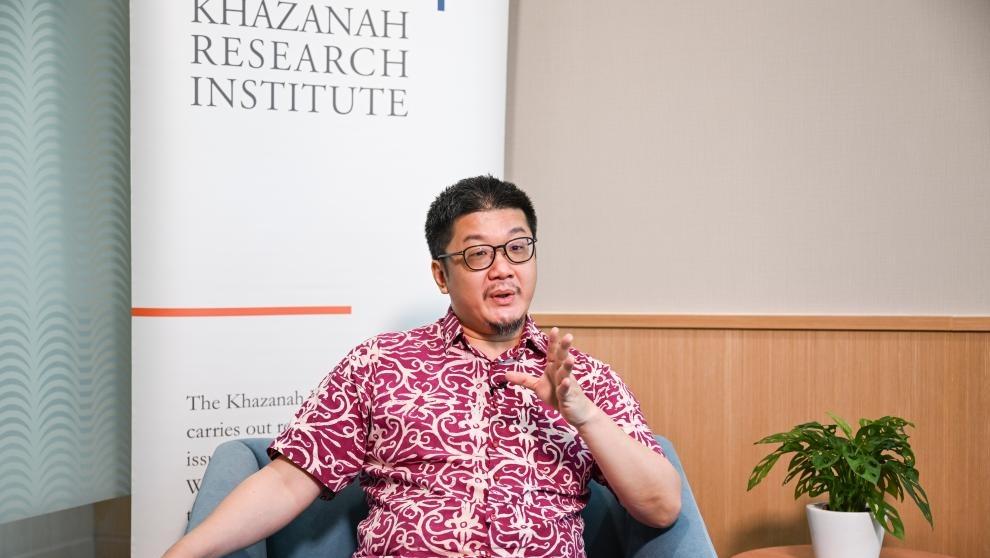Yin Shao Loong, deputy director of research at Khazanah Research Institute, speaks during an interview with Xinhua in Kuala Lumpur, Malaysia, Aug. 19, 2025.(Xinhua/Cheng Yiheng)
KUALA LUMPUR, Sept. 9 (Xinhua) -- Members of the Association of Southeast Asian Nations (ASEAN) can advance cooperation with China to help achieve the next technological leap, as the grouping's northern neighbor has not only made huge strides in green technology and digital innovation but has also proven to be a reliable partner, according to an analyst.
This will not only help the region advance its developmental aspirations, but also allow it to do so with stronger regional integration and with an in-built resilience that will weather global disruptions initiated by certain parties, Yin Shao Loong, deputy director of research at Khazanah Research Institute, told Xinhua in a recent interview.
Yin noted that ASEAN has been pursuing its own digital transformation and renewable energy initiatives, and partnerships with a range of countries, including China, will reinforce the region's capacity to adapt to a rapidly changing global economy.
He suggested that ASEAN's geographic position with China enables the region to function as an "economic hinterland" that will drive demand both within China and ASEAN, with the two complementing each other as markets and as trade partners.
Yin explained that China already possesses advantages in new technology, particularly in solar, electric vehicles (EV) and batteries, and that ASEAN will benefit as these products and their industrial supply chains spread across the region.
"In terms of green technologies, China is among the global leaders, especially in solar, electric mobility, and batteries. These are critical technologies for the future," he said, adding that he had seen firsthand the scale of Chinese advances during a recent trip to China.
"I think China also needs to think (about) how to sustainably propagate those kinds of technologies across the world, particularly in the Global South, and how to make those accessible. We already see some of that happening through manufacturing partnerships," he said.
Yin also said that ASEAN's working with China will strengthen its trade ties with the rest of the global economy beyond just East Asia to Africa and Latin America, areas where a rising middle class and increasing demand for high-quality and affordable manufactured goods will offset the decline in previously important Western markets.
He noted that the opportunities for encouraging external demand in the rest of the Global South are very important.
"I think we need to increasingly look to rising economies as well," he said.




 A single purchase
A single purchase









